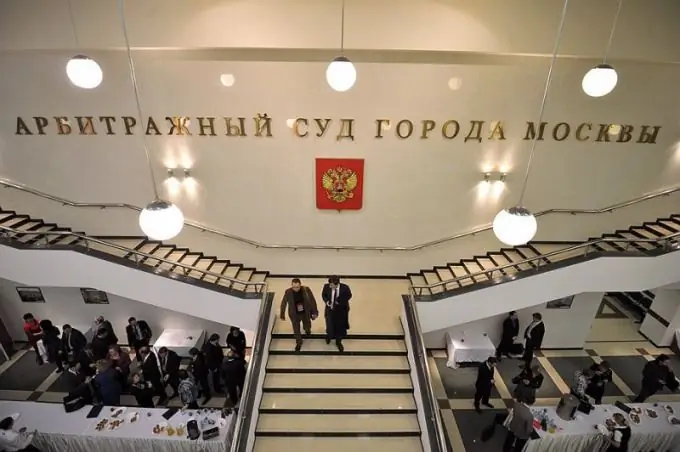If two hooligans decide to measure their strength and fighting qualities on the street and one of them is injured, they will have to come to a regular court. Perhaps even handcuffed. If two people are not able to share the household belongings equally, they are awaited in the magistrates' court. And if the same two, who are representatives of different enterprises, divide the property on a much larger scale, then they have a direct road to the arbitrator. Or - to arbitration.

Greetings from France
Our contemporaries owe the emergence of arbitration to the French. It was their term “fair decision” (in French it sounds like Arbitrag), which was used in dispute resolution, and became the primary basis of the current numerous arbitration courts. In the understanding of people living in the 21st century, arbitration is a legal organization that considers economic and other commercial disputes between private entrepreneurs and legal entities. They are connected exclusively with doing business. For example, when a bank or plant is declared bankrupt.
Simply put, the main function of the arbitration tribunal and its judges is to examine in detail and arbitrate disputes between three categories of clients: private entrepreneurs, legal entities, and government agencies (for example, tax inspectorates or customs). The only exception to the general rules is that arbitration does not shy away from trying the cases of ordinary people who also want to declare themselves bankrupt. Not so long ago, private bankruptcy became not so much fashionable as necessary. Especially after the emergence of institutions of banking and mortgage lending.
The competence of arbitration also includes disputes between shareholders and simply participants in various LLCs and OJSCs. Moreover, both among themselves and with their companies on such issues as the payment of dividends or the acquisition of shares. As well as consideration of claims of citizens and collectives who have received an unjustified, in their opinion, refusal to register as private businessmen or organizations.
Court, but not the same
Those who consider arbitration to be something of an authoritarian-repressive semblance of an ordinary court are very mistaken. There are no handcuffs with bars, no police guard, everything is decided in an exclusively peaceful and humane way. And the main actors in such processes are usually not the parties themselves or the prosecutor, not the heads of enterprises, who often do not even come to the courtroom, but their lawyers or specially hired business attorneys.
Among the main differences between arbitration and other courts, it is permissible to single out much shorter terms of consideration; regulation of the order by the Arbitration Procedure Code of the Russian Federation; formalization of requirements; special and special procedure for proving one's case; uniformity of proceedings in disputes recognized as similar.
Arbitration as an activity
Arbitration has a second meaning. It is called the very method of regulating disputes between people or organizations. For example, sports. It is for the sake of him that the disputants resort to the official services not of the courts, but of individuals or selected arbitrators. The latter, by the way, were once called arbitrators.
By the way, arbitrage is also called non-speculative logistics of finance from one foreign exchange market to another. Its main goal is to make a profit from the difference in exchange rates, in interest rates or in consumer prices.






